Test Your Thyroid Function at Home
Over 27 million Americans have some form of thyroid disease. Unfortunately, a whopping 60% do not even know they have this condition. This is because most doctors are not testing for it, or they are not doing the full thyroid panel that is necessary to diagnose a thyroid condition. In this article, I will show you how to test your thyroid function at home for free.
If you are a woman, you have a 75% greater risk of developing a thyroid problem than if you are a man! 80% of these thyroid conditions are thought to be autoimmune in nature, where the body’s immune system is attacking the thyroid tissue (1).
Unfortunately, most people struggle with poor thyroid hormone expression and are never properly diagnosed or treated to improve their quality of life and overall functionality. The purpose of this article is to give you an easy-to-perform home test you can do to tip off a possible thyroid problem and get the proper testing from your doctor.
Thyroid Hormone and Body Temperature
The thyroid hormone plays a major role in the metabolism of every cell of the body. It helps to increase the metabolic activity of the vast majority of cells and helps to regulate the body’s temperature levels. When thyroid hormone expression is dysregulated, body temperature will be altered.
In addition, the individual may experience a number of other unwanted symptoms such as unexplained weight gain, menstrual or fertility problems, fatigue, dry skin and hair, high cholesterol, and more. I go over these symptoms in detail in this article.
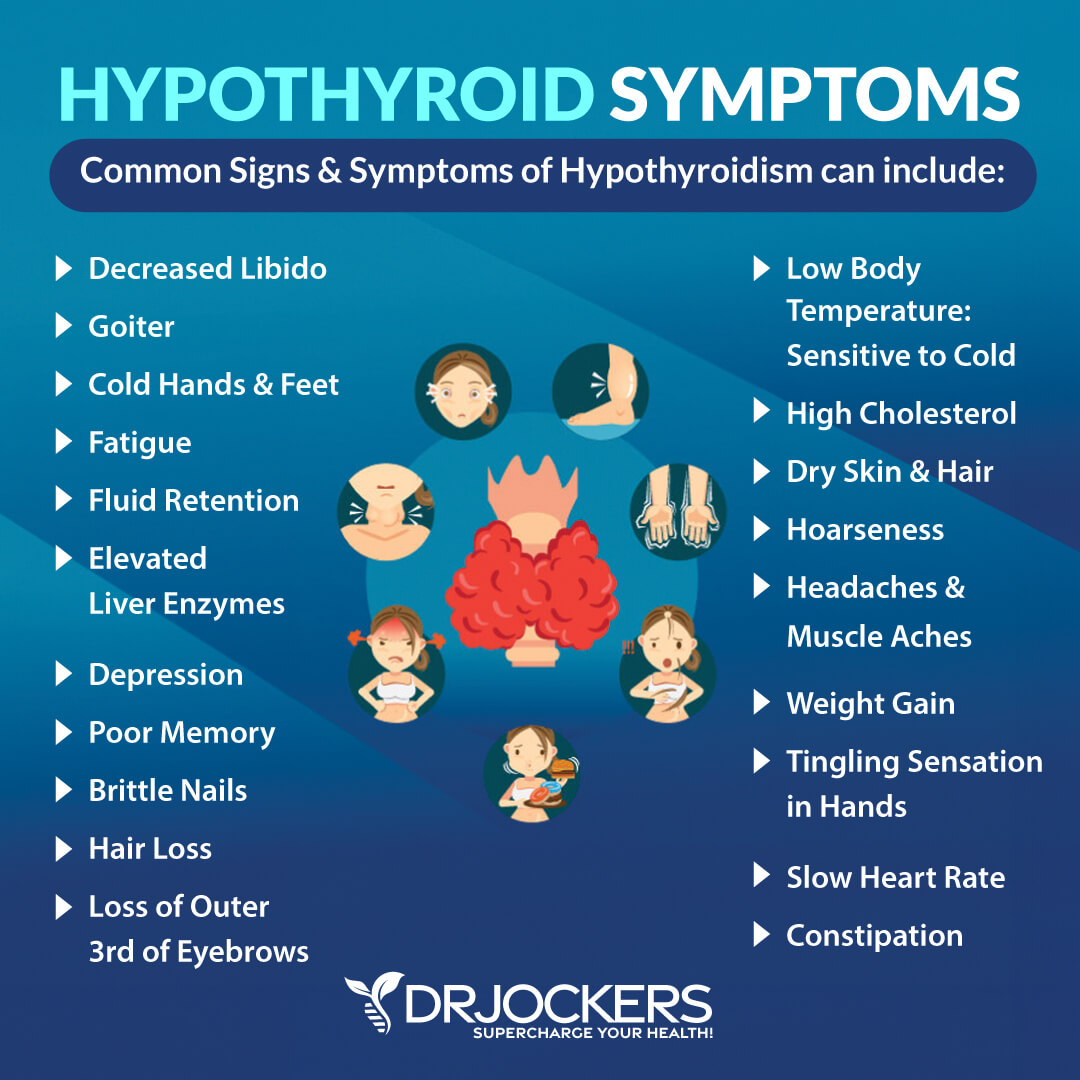
Thyroid and Basal Body Temperature (BBT)
One of the major clinical signs of hypothyroidism is low body temperature. Analyzing the body’s basal body temperature (BBT) through axillary (underarm) testing is a fantastic way to assess your thyroid function in a low-cost, non-invasive way.
This test was popularized by Dr Broda Barnes, MD, and has been used by many medical and natural health care practitioners over the years (2). Some research has been done on BBT, showing that it is highly correlated with low thyroid activity (3)
While most people are aware that the standard body temperature is 98.6 degrees F, the normal underarm temperature is 97.8-98.2 deg F or 36.6-37 deg C. If your temperature is consistently under 97.4°F or 36.5 °C, then you most likely have under functioning thyroid activity. If the temperature is consistently above 99 degrees, then you may have hyperactive thyroid activity.
The Importance of Basal Body Temperature
Low body temperature is not only an indication of a possible thyroid or adrenal dysfunction, but it can also create an environment for worsening problems. Our body temperature is critical for optimal immune function, circulation, enzyme activity, and more (4).
A lower-than-normal body temperature creates an environment that is ripe for pathogens like bacteria and viruses. The reason we create a high temperature fever when we have a bacterial infection or the flu is that the high temperature is inhospitable for the bacteria and viruses, and it activates powerful immune activities within the body.
Additionally, enzymes are temperature dependent and won’t function well at temperatures lower than the optimal temperature range. A low-body temp will reduce overall enzyme activity, which slows the body’s intracellular metabolism and causes an inability to buffer oxidative stress effectively. It also leads to poor digestion and sluggish gut and liver metabolism, and an inability to deactivate and excrete toxins from the body.

Instructions for The Basal Body Temp
- Get an old-fashioned mercury thermometer or Galinstan and put it by your bedside.
- Shake it down to 95 degrees F (35 degrees C).
- Upon arising in the morning, before you get out of bed or eat or drink anything, put the thermometer deep in your armpit for 10 minutes and record the temperature. Be sure to place it against your skin with the tip facing up into the armpit region.
- This process allows you to measure your lowest temperature of the day.
- The temperature should be taken for 4 consecutive days.
*If you are using an oral thermometer in the mouth for this, you must realize that the oral temp is typically about a ½ degree higher. So be sure to subtract ½ degree from your result to make it closer to your underarm temperature. If using the Galinstan or mercury thermometer in your mouth…leave it in for 5 minutes.
Thyroid Health, Menstrual Cycle, and BBT
Since women are 75% more likely to have a thyroid problem, we should obviously address the role of menstruation in the BBT reading. If you are menstruating, your temperature will naturally be higher during ovulation as it makes the egg more fertile. This increase in temperature will skew the results.
For this reason, menstruating women should not take the test during ovulation but instead should begin on the 2nd day of menstruation and should never get closer to 4 days pre-ovulation for accurate readings.

Other Factors Involved in BBT Readings
If you have an infection or a fever, do not take the test, as your temperature will naturally be skewed. Infections and fevers drive up body temperature and may cause a false negative. If you notice the temperature going up and down…with large gaps between days, it is a sign of adrenal hormone dysregulation.
As you age, the temperature may be lower, which could definitely have to do with the thyroid, but confirmatory blood testing is always the best way to know for sure. If your temperature is high, yet you have hypothyroid symptoms or have been diagnosed with hypothyroidism, it may be a sign of Hashimoto’s thyroiditis or autoimmunity against your thyroid.
In autoimmune based hypothyroidism, at times thyroid hormones can vary, and there is an increased amount of inflammation within the body. Both of these mechanisms can raise the BTT. High temperatures can also be a sign of anemia or low estrogen levels.
Confirmation Testing
As a functional health doctor, I do not use the BBT as a definitive test for thyroid function. But it can be a helpful pre-assessment. There are other factors that will impact the BBT, such as:
- Active Infection in the Body
- Ovulation
- Getting up and moving in the morning before testing
- Adrenal Function – low adrenal output can lead to low temperature, while high adrenal output can increase the temperature.
This is why I would follow up the testing with lab testing. In particular, be sure to test all the thyroid markers, including TSH, T4, T3, free T4, free T3, reverse T3, TPO antibodies, and TG antibodies. We have all of these tests and much more in our Comprehensive Blood Analysis.
Using the BTT for Thyroid and Adrenals
An individual can use this test to help them find out about their thyroid function as well as their adrenals. In fact, you can see how your supplement or medication dosage is supporting your body. Here are 5 ways this test can benefit your treatment
- After several days of taking a thyroid medication or thyroid glandular, you should begin noticing an improvement in the temperature.
- It can help you change the dosage of your thyroid medication or supplement.
- It can help you assess your adrenal function, which plays a role in the basal temperature as well. This is most notable in phase IIIA-IIID adrenal dysfunction.
- It can help you change the dosage of your adrenal supplements based on the results you are getting.
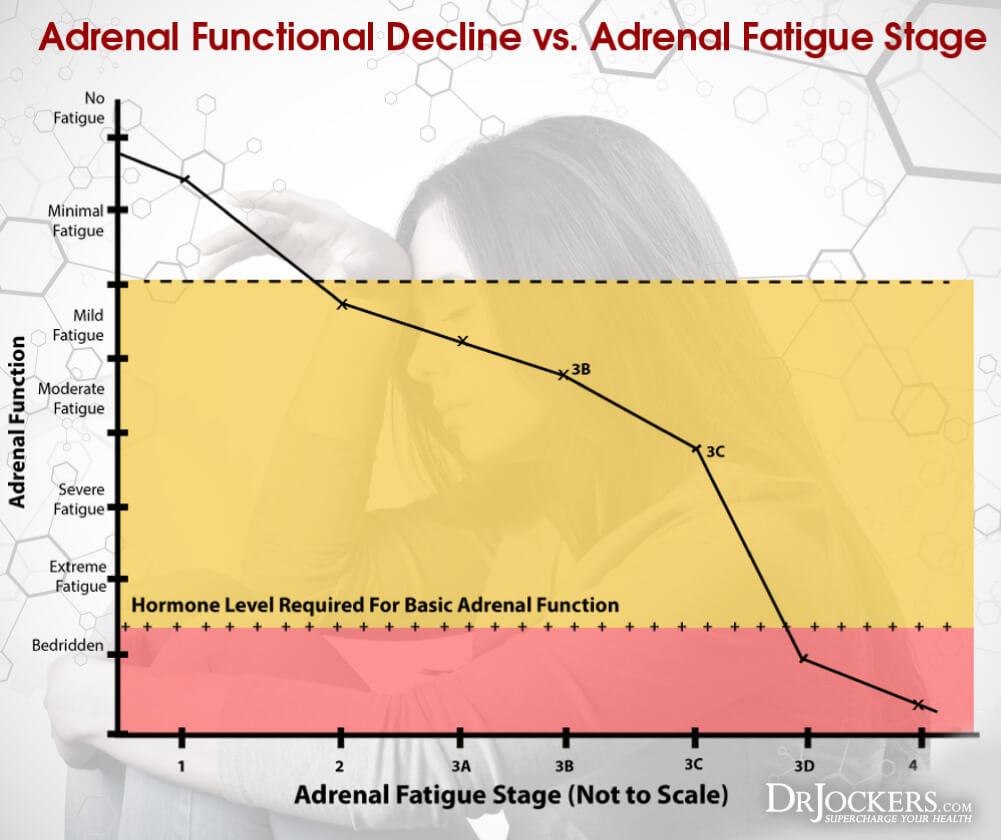
Using BTT to Look at Adrenal Function
The adrenals work to increase blood flow throughout the body as cortisol works with its cousin aldosterone, which are both made in the adrenal cortex. Cortisol helps to maintain blood sugar, while aldosterone helps to retain sodium and maintain blood pressure. When we retain more sodium, we also retain more water, which increases blood volume and blood pressure. When we retain less sodium, we also retain less water, which decreases blood volume and blood pressure.
When people have hypertension or high blood pressure, they often take an angiotensin-converting enzyme inhibitor (ACE inhibitor) to lower aldosterone levels and therefore lower blood pressure. When the signaling process in the body, called the hypothalamic-pituitary-adrenal (HPA) axis, is dysregulated, we can end up with either high or low cortisol/aldosterone levels.
Low blood pressure (under 100 systolic and 60 diastolic) is a common symptom for an individual with low cortisol, while high blood pressure (over 140 systolic and 100 diastolic) is common for individuals with high cortisol. Other symptoms associated with HPA or adrenal dysfunction are discussed in detail in this article.
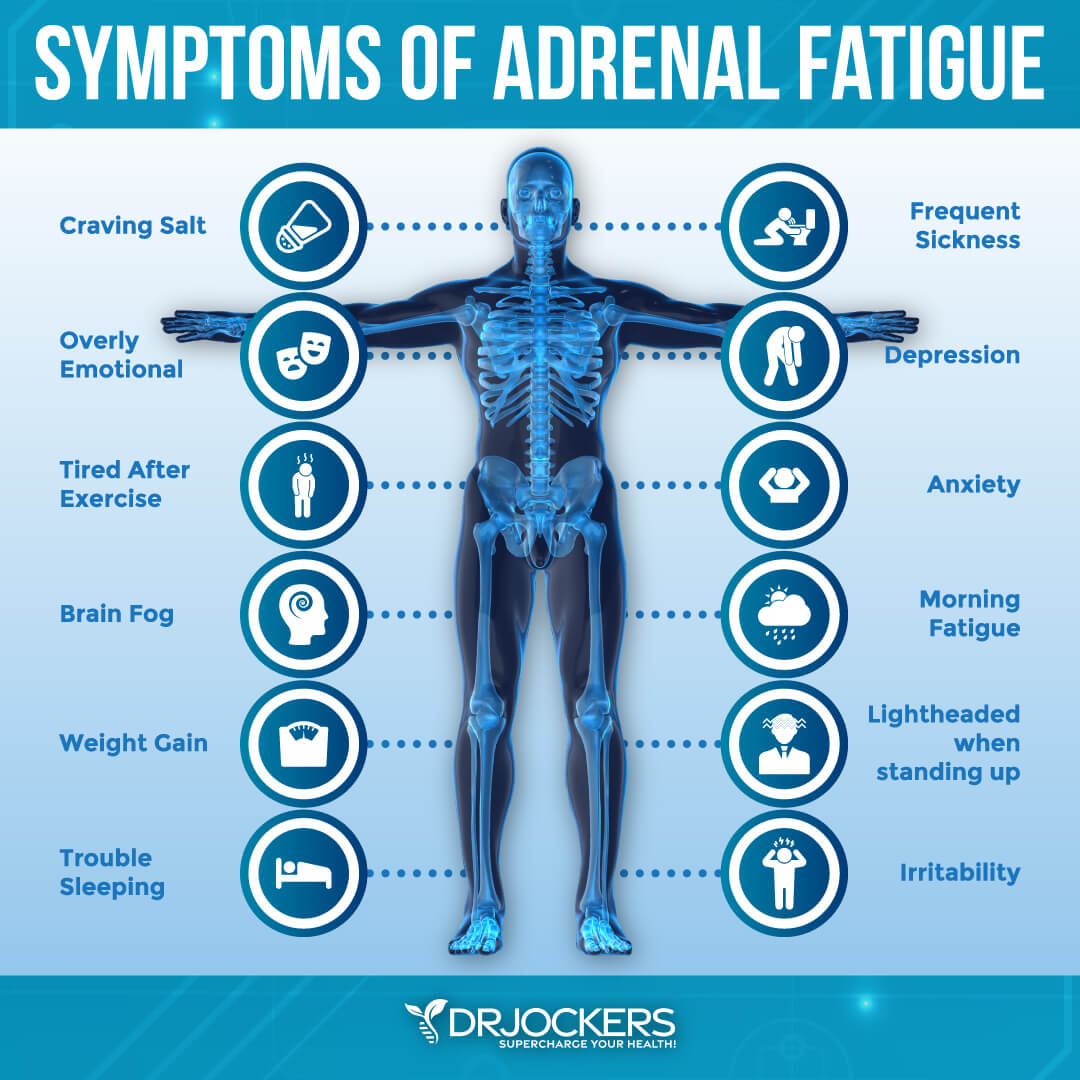
Testing Your Adrenals with BTT
The way most people experience low morning cortisol would be in an inability to get out of bed. It just seems so hard to drag yourself out of bed. If this is the case, it is most likely a low functional HPA axis in the morning.
To test your BTT to analyze cortisol levels throughout the day, follow the following strategy:
- 3 Hours after waking
- 3 Hours after that (6 hours after waking)
- 3 Hours after that (9 hours after waking)
- Take these 3 temperatures, add them up, and divide by 3 to get your daily average temperature (DATS).
- Do this for 5 days and analyze the results of each day. If any of the day’s temperatures are more than .2°F (or .1 °C) off from another, it may be a sign of adrenal dysfunction.
We don’t want to test in the evening or at night because cortisol should normally be low at that stage. Cortisol should be at its highest in the morning and slowly taper down as the day goes on.
If you are using a new adrenal supplement, give it 5 days before you begin testing to give it time to work on the HPA axis before doing a 5-day DATS. Some other home tests you could do to test your adrenal function include static blood pressure, orthostatic blood pressure, and the pupillary constriction test. I explain these in great detail in this article.
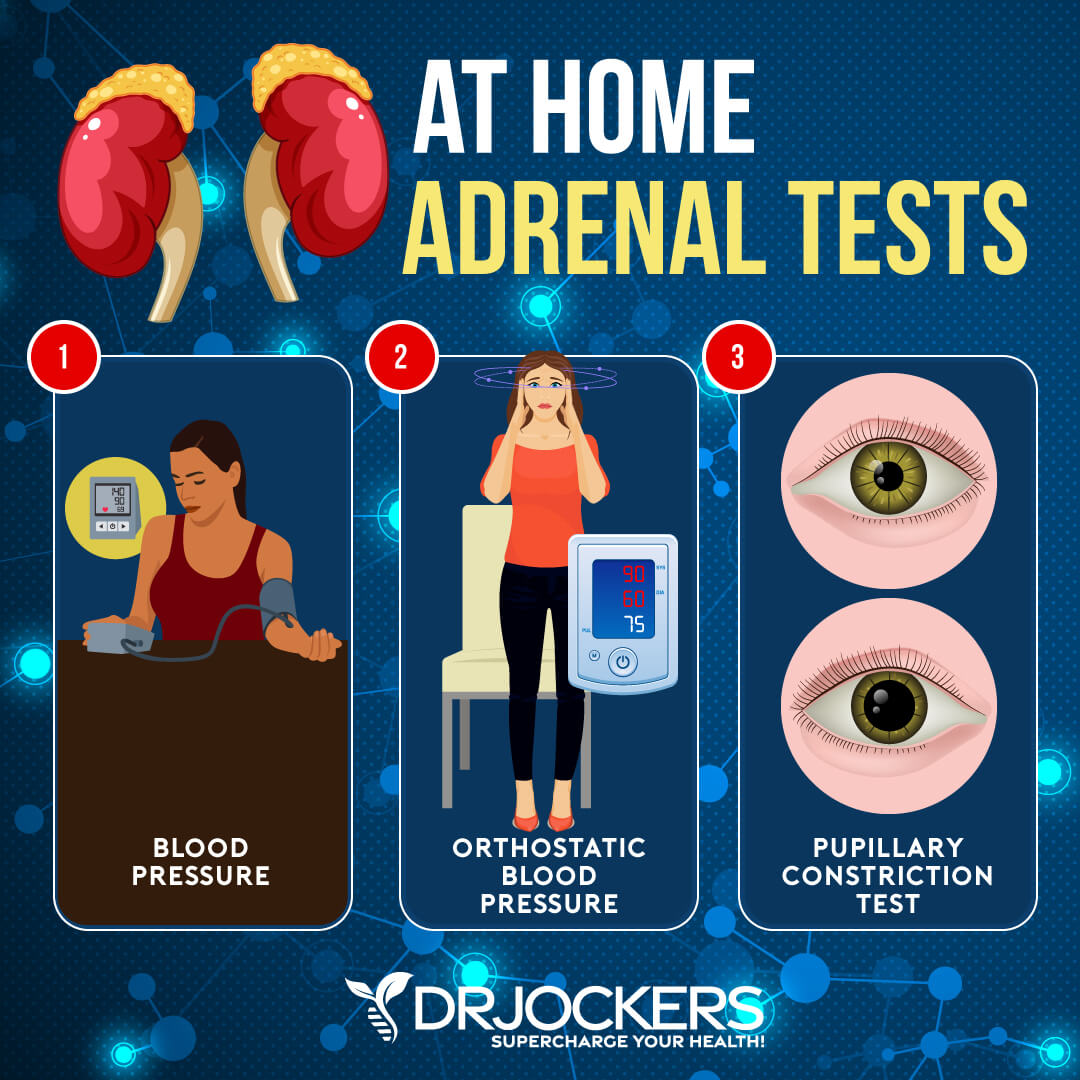
What is the Best Thermometer to Use?
Most specialists believe that digital thermometers are not accurate enough, and the temperature range can vary significantly. It is recommended to use the old-fashioned mercury thermometer. The downside of a mercury thermometer is that if it were to break, toxic mercury vapor would be released.
I recommend a Galinstan, which is a liquid non-mercury thermometer that has a great degree of accuracy. If you are going to use a digital thermometer, this one seems to work well.
With the Galinstan or mercury thermometer, be sure to shake it down to 95°F/35C degrees the night before checking or if doing the adrenal test, right before testing. Be sure to hold it under your armpit for a full 10 minutes before checking.
While taking your temperature, you could read a book or website, listen to light music, or watch a video. Be sure not to move around other than the lightest of movements as needed. For ways to improve thyroid function, read this article, and if you are looking to improve adrenal function, then you will want to read this article.
If you want to work with a functional health coach, I recommend this article with tips on how to find a great coach. On our website, we offer long-distance functional health coaching programs. For further support with your health goals, just reach out—our fantastic coaches are here to support your journey.
Inflammation Crushing Ebundle
The Inflammation Crushing Ebundle is designed to help you improve your brain, liver, immune system and discover the healing strategies, foods and recipes to burn fat, reduce inflammation and Thrive in Life!
As a doctor of natural medicine, I have spent the past 20 years studying the best healing strategies and worked with hundreds of coaching clients, helping them overcome chronic health conditions and optimize their overall health.
In our Inflammation Crushing Ebundle, I have put together my very best strategies to reduce inflammation and optimize your healing potential. Take a look at what you will get inside these valuable guides below!

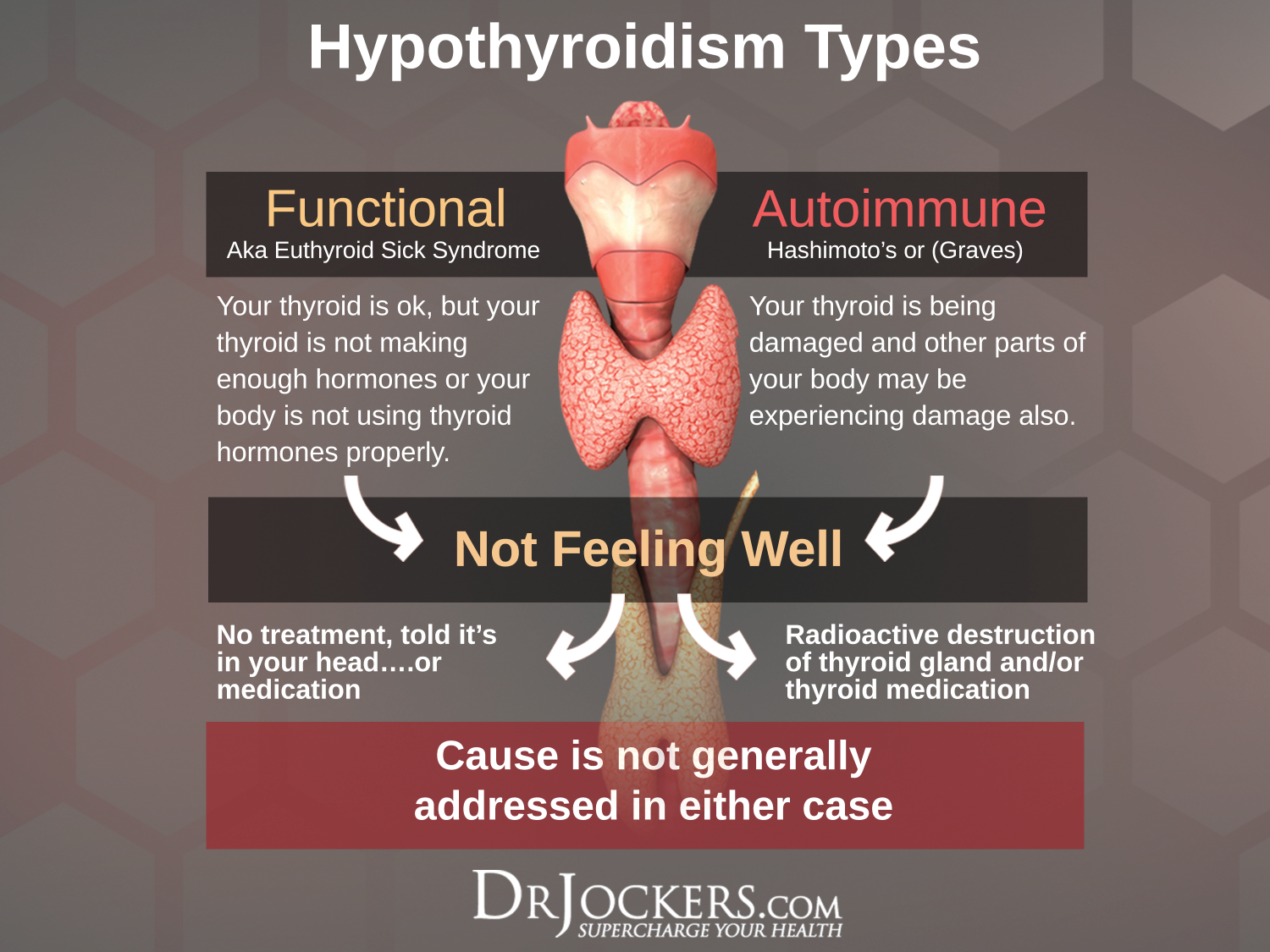
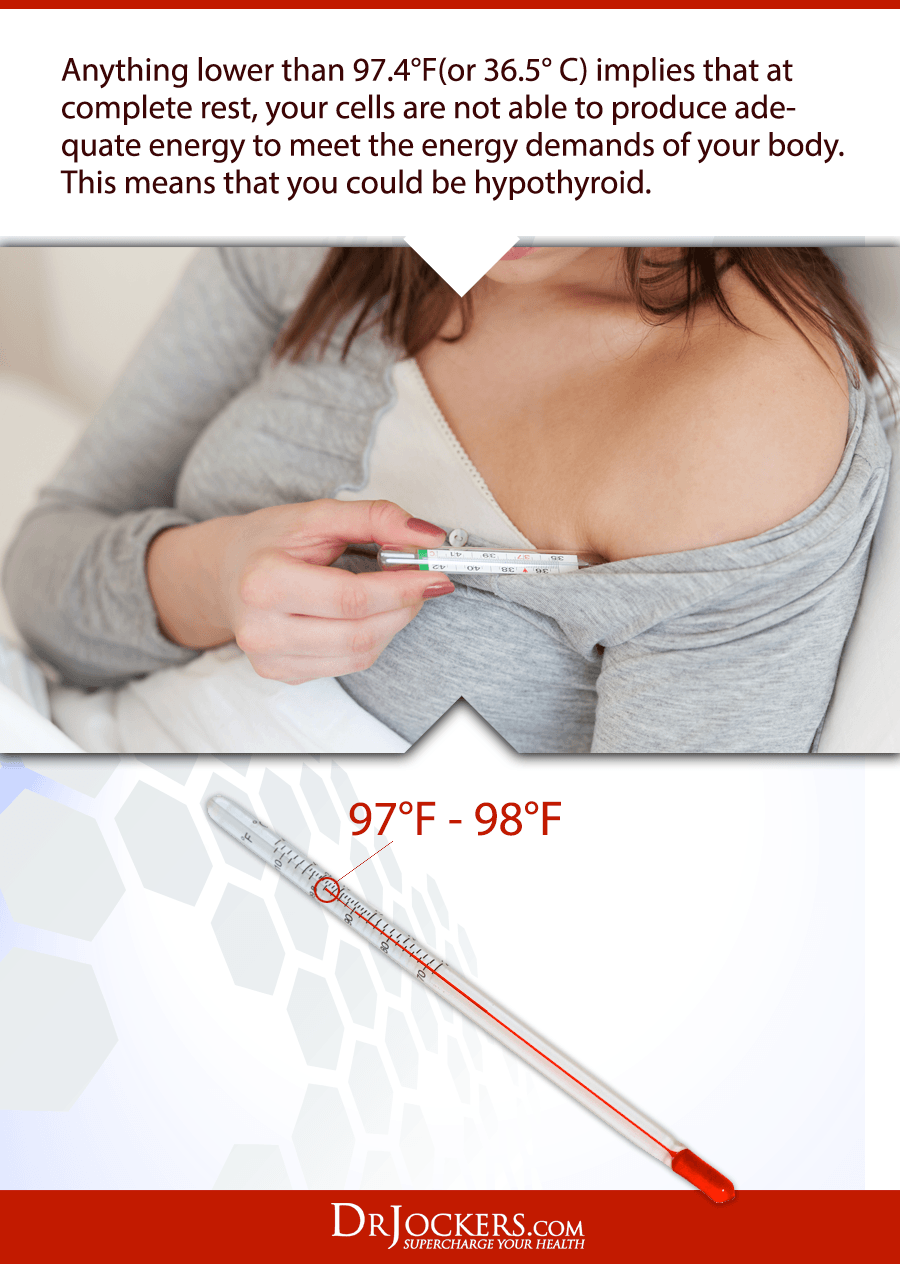
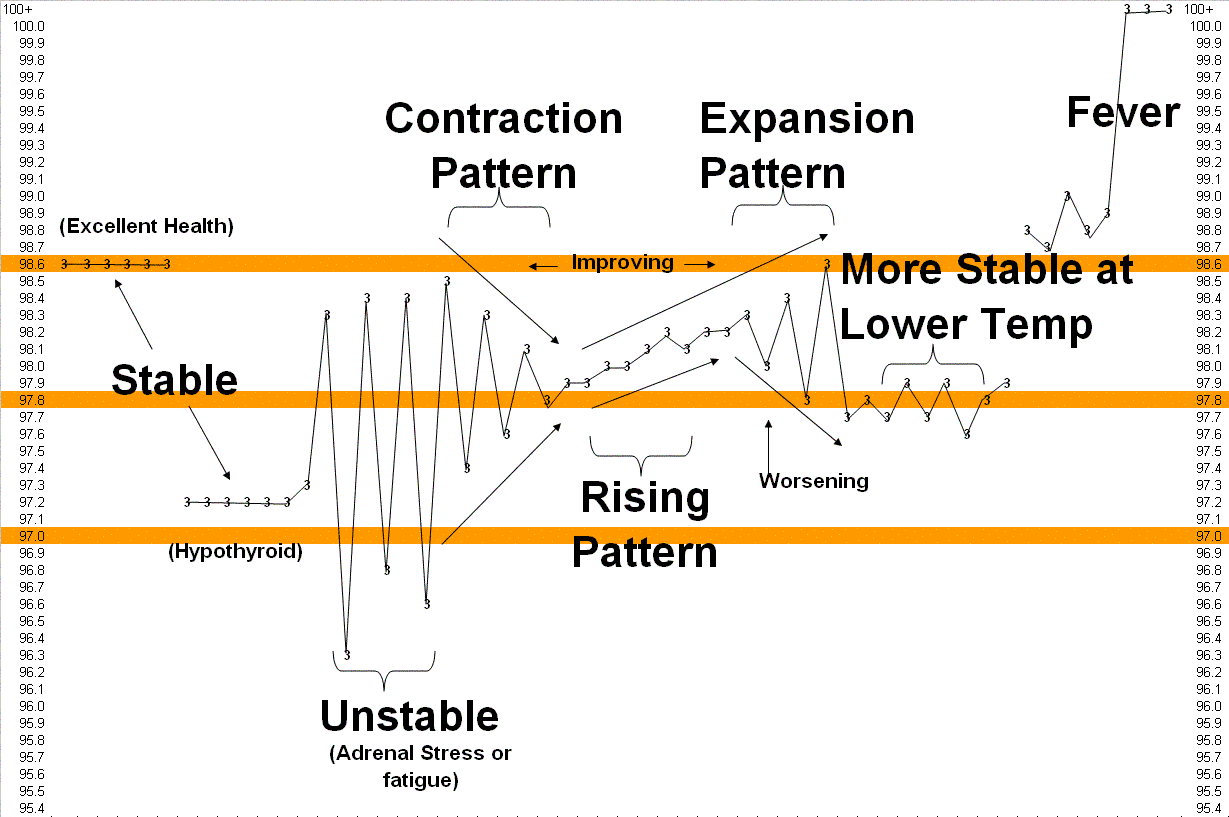
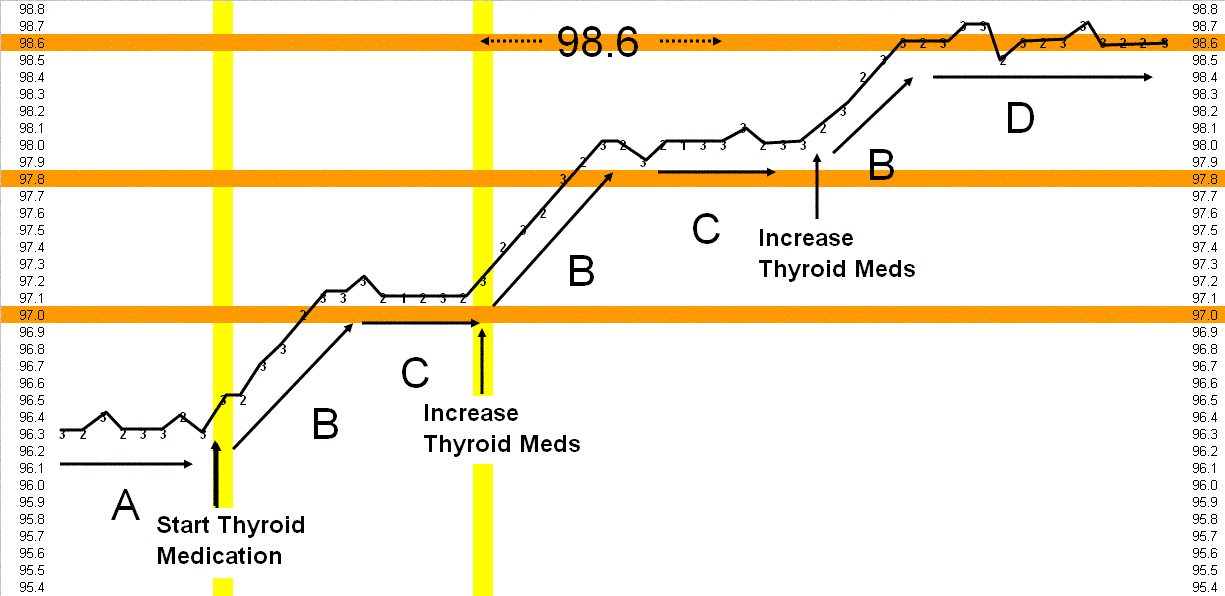
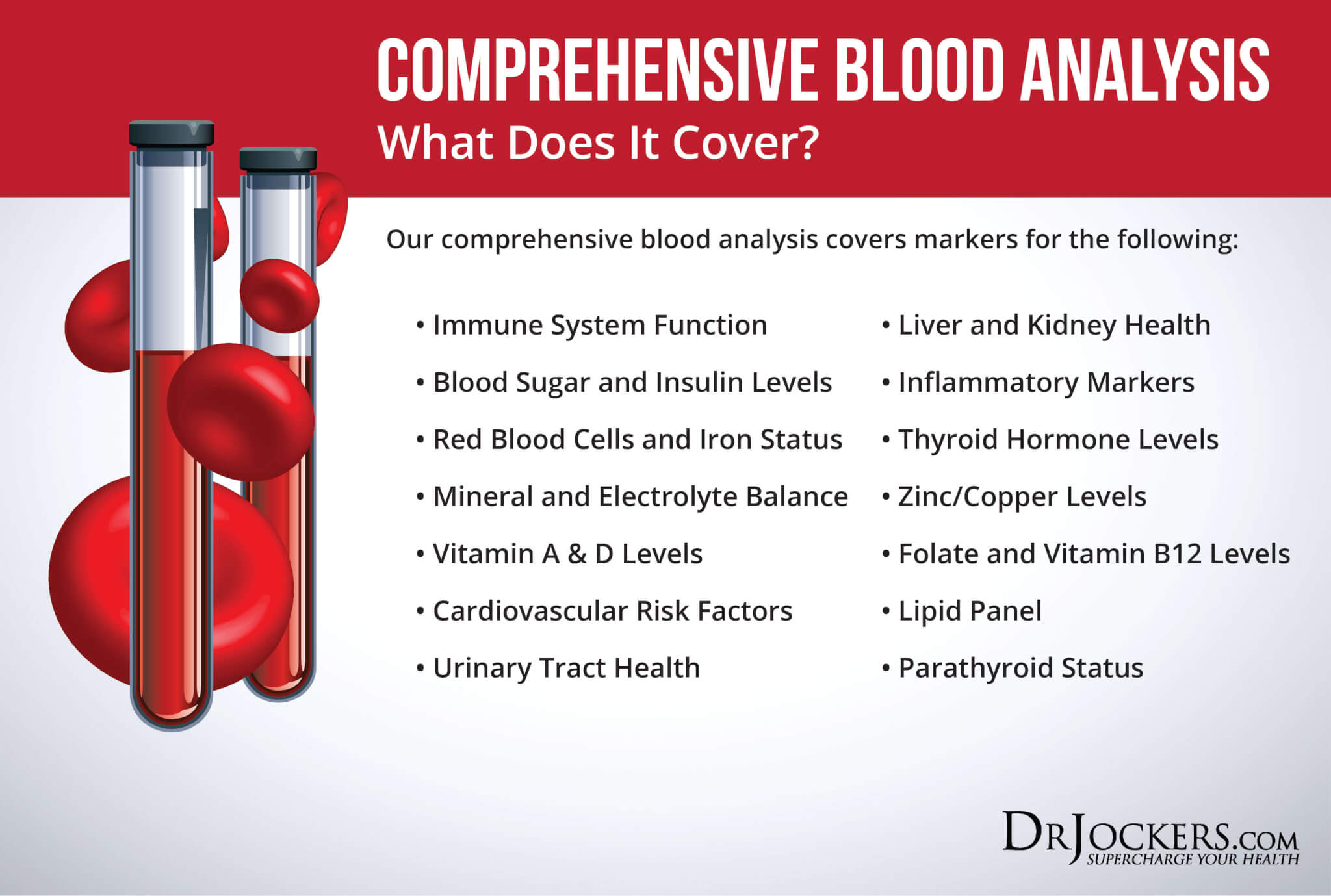




If you are using an oral thermometer in the mouth for this, you must realize that the oral temp is typically about a ½ degree higher.
Should be LOWER
Actually, it is normally 1/2 degree higher so this is accurate.
What about herpothyirod
Here is a helpful article Mary: https://drjockers.com/hyperthyroidism/
My son is having low temperature, from about 94.6°F in the morning to 97.1 °F later in the day. He is diagnosed with Hashimoto. On the day he is taking blood work and not taking his medication, he can have 92°F. His fingernails are getting blue, and nurse can’t take his blood unless putting heating pad for 10- 15 min. before. At the same time his last test showed very low TSH, high T4 and high T3, which made his doctor to consider him overmedicated and reduce his dose. I am extremely confused, and would appreciate your help.
So sorry to hear about this!! I would recommend having him consult with a functional health practitioner. https://drjockers.com/functional-nutrition-tips-to-find-a-great-health-coach/
Is there a way to test the adrenals without doing daily average temperatures? I have adrenal fatigue and am on adrenal cortex and have been told to do DATs to find the correct dosage however, this would have me taking my temperature at work, which is not possible.
Yes Nikki, check out this article: https://drjockers.com/test-adrenal-function/
Thank you very much. Saliva tests show I have low cortisol so I am taking adrenal cortex and am trying to the right dosage…or close to it before I spend the money to retest. The article says bp under 110/70 could be low cortisol. I just took mine and it was 102/78…so only the systolic is under. Would that still be considered low in terms of cortisol?
Not necessarily. If you are feeling dizzy going from sitting to standing than it could be an issue.
I have had blood tests that show I have hypothyroidism, but he is not a fan of treating thyroid problems. I have asked him many times to address it, he doesn’t think I have low enough numbers for meds. I have the symptoms, I had symptoms before the blood test confirmation. Low blood pressure, low body temp, extremely high cholesterol, fatigue, brain fog, ADHD, unexplained weight fluctuations, b.m. problems, and no cycles for 25 years. He won’t even send me to an endocrinologist, he did an adrenal test and said it was fine. I’m not sure what I should do. Any advice? Thanks
Sorry to hear this! It is time to find a new doctor or functional health practitioner. Here is a helpful article https://drjockers.com/functional-nutrition-tips-to-find-a-great-health-coach/
I’m 46, still have normal cycles, (was actually pregnant last year and miscarried at 12 weeks) and take my temperature every morning to track my fertility. My period, and pre ovulation temp using an oral bbt is typically 97.1-97.4. Has been for last several years in that range. I’m always cold, thinning hair, yet my TSH was last 2.8 and my other numbers including antibodies were in the normal range so my doc says my thyroid is normal. Does a low bbt always corolate with hypothyroidism? So confused. Thank you – love your work.
Hey Margie,
A 2.8 TSH level is an indication that your brain is having to yell at your thyroid. And you have all these clear thyroid symptoms. Whoever tested you and saw the TSH this high and did nothing about it, dosn’t understand enough about brain-thyroid axis. You are very clearly struggling with a thyroid issue. I would imagine you aren’t producing enough active thyroid hormone. Be sure to get a thorough set of labs with a functional health practitioner to get to the root cause.
1/29/19: Is the thumb drive available now, or is there a delay indelivery? Thanks
Are you talking about the thumb drive for the Fasting Transformation Summit? If so, you will need to inquire here: https://fastingtransformation.com/contact-us/
LOL “Aldosterone converting enzyme”? The “doctor” means ANGIOTENSIN converting enzyme…
Hi Dave, Thank you for reporting that mistake. Our team has updated the article. To clarify, ACE inhibitors do cause a reduction in aldosterone levels as well. Blessings!
What I find I can LOL about is your obvious enjoyment at finding a fault somewhere, anywhere with the, as you put it, “doctor”. While the remainder of us are grateful that the fault isn’t found in treatment of a patient, but rather an easily corrected web posting. Sorry to have placed a damper on your glee. SAD that treatment that far out dates modern medicine and was understood far better and utilized properly falls upon the deaf ears and arrogance of the “GOD complex educated” of today, providing little in care and often, not only harming but, permanently disabling their patients and ethics and oath be damned! Yeah, you have a lot to laugh about. Disgusting!
Thank you for your support and understanding Veronica. Blessings!
My doctor diagnosed me years ago with euthyroid. I have been on Levothyroxine (1) 75 mcg and (11/2) Liothyronine 5 mcg. I am managed but I am not feeling optimal. I have been taking for 10 years. I am currently 64. I also have a goiter and nodules. I have started taking iodine and selenium.
Is it realistic that a person could ever get off off thyroid medication? I have been told I will need to take for life.
I take no other medications. However I do have hormonal issues.
Hey Peggy, this is always a case by case basis and while some are able to get off of thyroid meds, other may need them. I would suggest working with a functional health practitioner to optimize your plan. Here is a helpful article: https://drjockers.com/functional-nutrition-tips-to-find-a-great-health-coach/
I have been reading This book,
Robert Thompson MD
What Doctors Fail to Tell You About Iodine and Your Thyroid.
What do you think about the iodine factor?
I have between 96.2 – 96.6 every morning, I have lost 30-40% of my hair, Brain fog, memory loss, tired in the mornings, quick to anger, very emotional, facial wrinkles increasing too fast, low sex drive, and gaining weight quickly, anxiety & depression. I tried the keto diet for 5 month only to loose 10 lbs and that’s when my husband as it loss started 😩 Im 43 I have been confirmed Post medopausal, after begging doctors for answers for the past 10 years. My body changed (I believe hormonally) after giving birth. Any advice.
That’s when my hair loss began/ “not husband as it loss” auto correct 😒
Sorry to hear about this! It does sound like you have thyroid issues. Here is a helpful article: https://drjockers.com/thyroid-health/
Hi Dr J,
I have Hypothyroid symptoms but my TSH is less than 2, so my doctor is not putting me on Thyroid medication. I have been measuring my BBT last for days (since day 3 of my menstrual cycle) and it is 95.3 to 95.8 range, which is quite low! Would you recommend the Thyroid Strong supplement?
Yes I would recommend adding in the Thyroid strong and trying 2-4 caps in the AM upon rising and seeing if you feel better and your BBT changes. If you notice hyperthyroid symptoms (rapid heart rate, excessive heat, eye pain, anxiety than come off of the thyroid strong). You most likely will not experience hyper issues but always good to be aware. Blessings!
Hello Dr Jockers, My 7.5 year old daughter has a TSH of 3.6 uIU/ml. Is the range for kids the same as for adults? What would you suggest for her?
Yes that does indicate an early problem. I would recommend doing a gluten-free, dairy free diet and adding in the MitoRestore – 5 drops – 2x daily and see how she does with that. https://store.drjockers.com/products/mito-restore
Hi!
In the mornings, my body temperature is usually 36,7 – 36,8 degrees. But when I check it in an other times of the day (noon, afternoon, evening), in many times it is 36,5 / 36,4. Could it be hypothyroidism, when it is not low in the morning?
Possibly if you are having a lot of hypothyroid symptoms. But most likely it is an adrenal problem
Thank you very much for the answer!
I have always been flabby, sluggish and with low vitality. Until last year. Then I lost weight easy only with weak sport and less carbohydrates. Then I had a vitality like no other way in my life. I haven’t measured my temperature, but I haven’t had a problem with the cold in the winter. But my period suddenly disappeared and the doctors couldn’t tell the reason about it. I stopped the sport and all and after several months I returned to my previous condition, which include fatigue in the mornings and in the afternoons. In this previous condition I have had TSH measurement 2,55. When I sported and had more energy I have measurement again and it was 1,15.
I don’t know which endocrine problem could be THE FIRST and IS ABLE to affect other glands. Adrenal hormones, sex hormones or thyroid hormones…
PS: I’m sorry for the grammatical mistakes…
What is your opinion – which is the initial problem, which has a capacity to mess an other glands and systems?